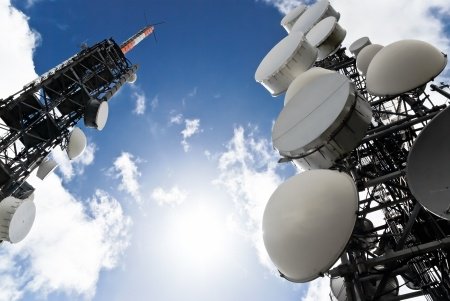DICT seeks level playing field for 3rd telco

INQUIRER FILE PHOTO
The Department of Information and Communications Technology (DICT) committed on Monday to wrap up a series of policies to further level the playing field in the telco sector as it seeks to choose a challenger to incumbents PLDT Inc. and Globe Telecom by next month.
Chief among these were rules for the reallocation of valuable radio frequencies, including those held by PLDT and Globe, and a policy for sharing cell towers. These were expected to help the viability of an incoming third telco player and to reform dated regulations.
During an explanatory hearing chaired by Sen. Grace Poe on Monday, DICT acting secretary Eliseo Rio Jr. said the rules for the “equitable distribution of frequencies” would be ready by the first quarter of 2019. Radio frequencies, a set of which will be awarded to the third telco player, are essential in providing mobile services such as calls, text messaging and internet browsing.
Should the government succeed in luring a third player, the PLDT Group would control about 40 percent of the mobile frequencies, followed by Globe at 35 percent and the third player at 25 percent.
Pierre Galla, co-founder at advocacy group Democracy.Net.PH, said during the hearing that the spectrum to be allocated to the third player is sufficient. He explained that a company with smaller frequency holdings can offset the shortfall by building more cell towers, a strategy he said was successfully executed by Thailand’s dtac, part of Norway’s Telenor Group. Telenor is among the companies that acquired bid documents in the DICT’s third telco selection process.
Rio said a third player, which will start with zero customers against over 100 million subscribers between PLDT and Globe, will have enough frequencies to start its mobile business.
During the hearing, the DICT secretary also appealed to lawmakers to pass legislation to support spectrum management reform.
“If a law is passed it will make our jobs easier,” said Rio, as he described the complicated process the National Telecommunications Commission would need to undergo to reallocate frequencies.
Another key initiative is the common tower policy, which Rio said would be finalized before the end of the year.
During the hearing, Rio said he was not inclined to approve the current draft of the common tower rules, citing key portions that prohibit PLDT and Globe from building new towers.
Rio explained that he was wary about legal challenges from the incumbents, both of whom argued that such a provision would violate their franchises from Congress.
Rio’s stance puts him at odds with Ramon Jacinto, the Presidential Adviser on Economic Affairs and ICT who holds oversight functions over the common tower policy. Jacinto, a champion of the controversial provision, said “majority of participants” at a recent public hearing on the matter supported his views.
“Secretary Rio and I work well together. He called the public forum. He normally follows the results of the public forum,” Jacinto said on Monday.
During the hearing, Rio reiterated their commitment to choose a third mobile player by November. The bid deadline has been set on Nov. 7, 2018.
So far, eight companies have acquired bid documents, including China Telecom, Telenor and Mobiltel Holding of Austria.
Rio said that while the prospective third telco would be known this year, the license would be awarded by early 2019. After this, he expects the company to start rolling out services in around six months. /cbb
